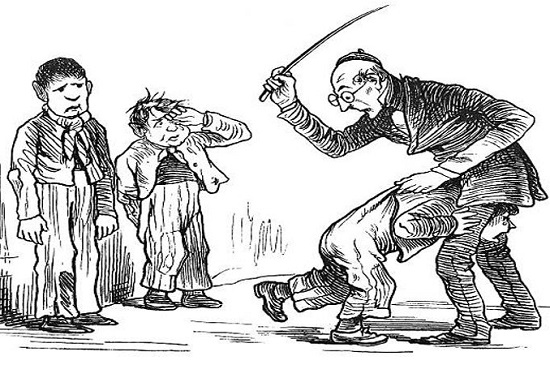“But what about the Chiiiiiildren?” I can hear the wails already, in response to this latest example of Antipodean totalitarianism:
Cellphones will be banned in schools across New Zealand, conservative Prime Minister Christopher Luxon said Friday, as his fledgling government looks to turn around the country’s plummeting literacy rates. The move would stop disruptive behaviour and help students focus, he said.
New Zealand’s schools once boasted some of the world’s best literacy scores, but levels of reading and writing have declined to the point that some researchers fear there is a classroom “crisis”.
Luxon declared he would ban phones at schools within his first 100 days in office, adopting a policy tested with mixed results in the United States, United Kingdom and France.
I know the thinking behind this: what has changed with schoolkids since (say) 1980 when literacy rates were X, but which are now X/5?
Cell phones!!!!!!
So it’s to the banning table we go.
Of course, what has also changed in the interim is that (dare I say it) teacher quality has plummeted, teaching methodology has deteriorated, and classroom educational standards have dropped.
But those are sehr schwierig (nay, even impossible) issues to tackle, because we know that all teachers are dedicated professionals who have only the kids’ best interests at heart, teaching methodology is much better now that we’ve dropped silly things like rote learning of arithmetic tables and lowered spelling standards in favor of feelings, and we won’t even talk about topics like strict grading and corporal punishment (eek).
It’s so much easier just to ban cell phones.
Now understand that I’m actually in favor of banning the fucking things in schools because at best, children have the attention span of gnats and the blessed ability to Goooogle stuff is so, like, cool and easy and twenty-first century, Dad; while old-fashioned learning is difficult and so, like, nineteenth century. (I’m hopefully assuming that the modern generations are actually aware of the existence of a 19th century, but let’s move on.)
And I’m not interested in the supposed safety of the Chiiiiildren that cell phones are supposed to bring. In fact, the proven negatives of cell-phone slavery amongst kids outweigh every single aspect of supposed in-class student safety, so there ya go.
Have the little shits turn their precious phones in at the school doors, to be returned when they leave the premises. And have “backup” phones permanently confiscated when found.
So go for it, KiwiPM Luxon: ban the poxy things.
And then, when literacy rates remain stubbornly in the basement, you can tackle the real problems, as outlined above.



